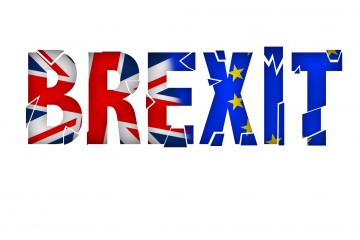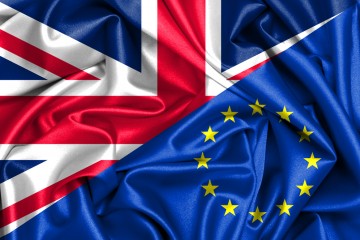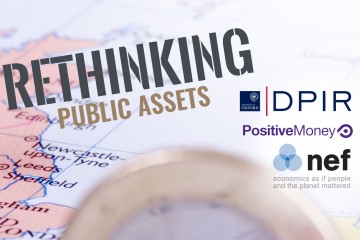
Clinton v. Trump: How Hillary Wins the Narrative Game
In the likely event that Hillary Clinton secures the Democratic nomination by the end of May or early June, the task of uniting the party behind her will be much less onerous than that of whoever emerges from the GOP field. For Republicans, a ‘brokered’ convention looms on the horizon. And, given the severely fractured status of the conservative movement in America, it will be hard for any candidate—Trump or otherwise—to appeal to a national constituency that seems to lack any consensus on what it means to even be “conservative.” Secretary Clinton, on the other hand, would have the time and resources to bring unity to her platform and to her party following what has been an impressive challenge by Vermont Senator Bernie Sanders.

Why Conservative MPs back Brexit (or not)
Ever since the Conservatives’ surprise win of a Parliamentary majority in the 2015 general election, the EU referendum has been at the centre of public debate. There has been much speculation about how many Conservative members of parliament (MPs) would back Brexit. Now David Cameron’s renegotiation has been concluded, MPs are free to choose sides in the referendum debate. Ever since, scores of Conservative of MPs, including the Mayor of London and six Cabinet Ministers, have endorsed the Leave campaign. Other MPs have sided with the Prime Minister and the Chancellor in backing Remain. My DPhil research focuses on the position of members of parliament with regards to Europe. In this article I use my own dataset of Conservative MPs …

Negotiating Brexit: The Legal Framework
Many voters and some politicians would expect a Brexit vote to lead to immediate action by the UK to over-ride EU rules, including restrictions on EU immigration. Some sections of the press would call for no less, and demand a quick fix for immigration, and a quick fix for a new trading relationship with the EU in which trade “just means trade.” Leaving the EU would be a process rather than an event. But leaving the EU would not be like this. It would be a process rather than an event. The UK would remain in the EU until it had negotiated a withdrawal agreement. It would probably also seek to remain in the EU until it had …

A letter to my British friends: for Europe’s sake, please stay
The EU might be dysfunctional but it is still Britain’s home. Help us fix it from the inside. Dear British friends, My kids and husband are British, I teach and pay taxes in this country, talk to my village neighbours everyday and love English country lanes, Scottish castles, Welsh road-signs, Cornwall’s gardens and all the bloody rest of it. As a French and Greek citizen, I won’t have a vote in this referendum and yet this is one of the most momentous decisions that will ever be taken in my name, as a European citizen living on this side of the channel. So, along with the two million other EU expats living here, and millions on the continent …

How dangerous is North Korea?
Fourth nuclear test re-energises bellicose tone against the US and South Korea A few announcements made by North Korea in the past two months have been making the international community uneasy. Last January, the country said it had successfully carried out a hydrogen bomb (H-bomb) test as an ‘act of self-defence’ against the US, claiming to have gained the capability to ‘wipe out the whole US territory’. In February, Kim Jong-un’s regime launched a satellite into space in a movement considered by specialists as a cover up for a ballistic missile test. Albeit Pyongyang tends to overstate its accomplishments, the satellite launch and the alleged detonation of a hydrogen bomb represent, combined, a considerable leap for North Korea’s military capabilities. If converted …

Brexit: Why the Leave Campaign is Likely to Lose
Events over the last few days should have put a spring in the step of the euro-sceptics in Britain. The recent draft paper setting out the basic parameters of David Cameron’s renegotiation deal was savaged by the press last week. A YouGov poll for The Times on the weekend put the Leave campaign nine points in front (although research was carried out on line and such a methodology proved to be problematic during last year’s general election). More generally, the European Union (EU) is perceived by many to be in crisis, buffeted by the twin threats of sovereign debt default (especially in Greece) and large scale migration from the Middle East. On the face of it, it looks like a …

The Legal Framework: What happens if we vote for Brexit?
The EU referendum could be held as early as June so clarity is needed about what will happen in the event of a vote to leave. In this post Alan Renwick explains Article 50 of the Lisbon Treaty which sets out the procedure for leaving the EU. Under it a second in/out referendum of the type floated by Boris Johnson among others is not possible. Anybody suggesting that voters can vote to ‘leave’ safe in the knowledge that they can later change their minds is either playing with fire or manipulating voters disingenuously. 2016 looks likely to be the year in which voters get to decide whether the UK will stay in the European Union. If David Cameron secures a deal with other EU leaders …

Rethinking public assets: land and capital
Rethinking public assets: land and capital
Play Episode
Pause Episode
Mute/Unmute Episode
Rewind 10 Seconds
1x
Fast Forward 30 seconds
00:00
/
1 hour, 13 minutes.
Subscribe
Share
RSS Feed
Share
Link
Embed
Download file | Play in new window | Duration: 1 hour, 13 minutes.The UK has a crucial role to play in the debate over how the EU should be reformed. This session engages in a conversation as to why and how.









